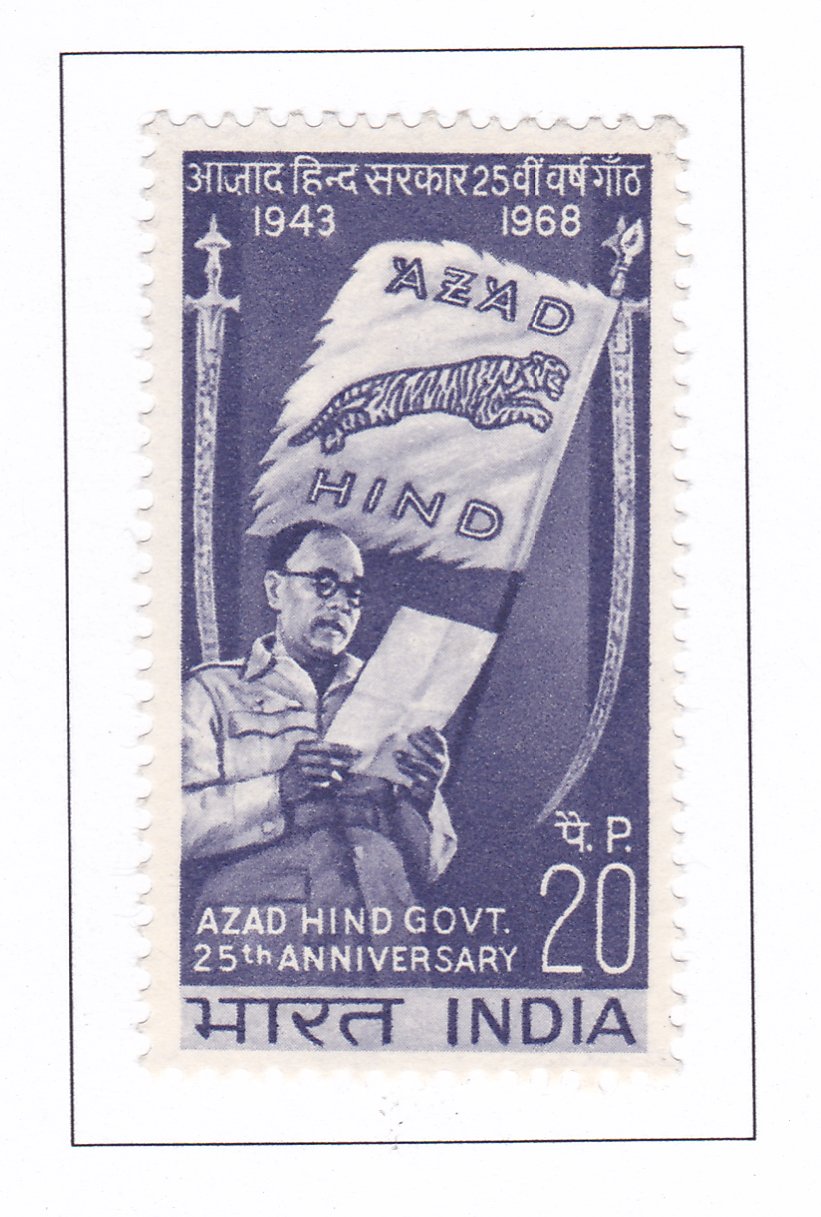Azad Hind Government 25th Anniversary

Technical Data
| Date of Issue | October 21, 1968 |
|---|---|
| Denomination | 20 nP |
| Quantity | 2,000,000 |
| Perforation | comb 14¼ x 14¾ |
| Printer | Security Printing Press, Nashik |
| Watermark | No Watermark |
| Colors | Deep blue |
| Catalog Codes |
Michel IN 458 Stamp Number IN 474 Yvert et Tellier IN 257 Stanley Gibbons IN 572 |
| Themes | Anniversaries and Jubilees | Famous people | Flags | Independency Activists | Politicians | Swords |
The establishment of the Provisional Government of Azad Hind or Free India on October 21, 1943, marked a pivotal moment in India’s struggle for independence. Led by Netaji Subhas Chandra Bose, this historic proclamation was made in Singapore, heralding the beginning of the final phase in India’s fight for freedom.
Prior to this event, there was a prevailing belief that India’s independence would be granted by external forces. However, the Quit India Movement of 1942 and the formation of the Azad Hind Government shattered this notion, reaffirming to the Indian people that self-rule was their birthright and achievable through their own efforts.
The establishment of Azad Hind symbolized India’s unwavering aspiration for freedom, embodied by the leadership and sacrifice of Netaji and his dedicated patriots. The formation of the Indian National Army (INA) and its engagement with British forces on India’s eastern front in 1944 served as a reminder that India’s fight for freedom persisted despite the incarceration of its leaders.
What made Azad Hind particularly significant was its representation of India’s unity, with officers and soldiers hailing from various regions and communities across the country. The saga of Azad Hind began with Netaji’s departure from India in 1941, where he spent two years organizing the Free India Army among Indian prisoners of war in Europe. His subsequent journey to Japan in 1943, after a perilous submarine voyage, led to the emergence of a real government of Free India, recognized by nine foreign powers.
Although the fortunes of war shifted, and the Japanese surrendered to the Allies in 1945, the spirit of Azad Hind persisted. Despite Netaji’s disappearance, the legacy of the Azad Hind Government endured, particularly during the trials of INA officers in Delhi. The iconic phrase “Jai Hind” (Victory to India) remains a testament to this glorious chapter in India’s history.
On the 25th anniversary of the formation of the Azad Hind Government, the Department is honored to issue a commemorative stamp depicting Netaji reading out the proclamation, immortalizing this historic occasion and honoring the indomitable spirit of India’s struggle for freedom.
